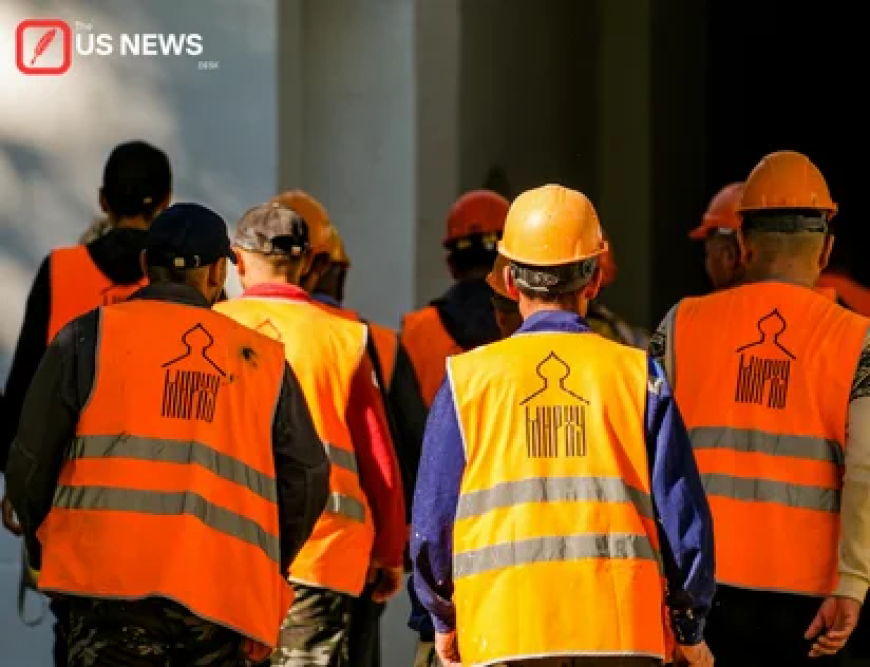Immigration Raids in the Midwest: The Hidden Toll on Korean Workers and Rising Political Backlash
Immigration raids in Illinois and other Midwest states reveal hidden impacts on Korean workers, sparking economic strain, political backlash, and emotional tolls on local families.

Immigration enforcement in the United States often makes headlines as a matter of national policy. But the true costs of workplace raids are felt locally—in homes, factories, and community centers where workers live and work. In Illinois and other Midwestern states, Korean immigrant workers are now at the center of a growing political and economic storm.
A Factory Raid in Illinois Sparks Fear
Last winter, federal immigration agents conducted a large-scale raid on a food processing plant outside Chicago. Dozens of Korean workers were detained, leaving families scrambling for legal help and employers short-staffed.
Through Freedom of Information Act (FOIA) requests filed with the Department of Homeland Security, we obtained records confirming that 127 individuals were detained in Illinois raids between late 2024 and mid-2025, with a significant portion identifying as Korean nationals or Korean Americans with mixed legal statuses.
For families like that of Mrs. Lee, whose husband was taken during the raid, the aftermath has been devastating. “He was the only one working. Now I’m left with three children and no income,” she said in an interview from her small apartment in Schaumburg.
Economic Strain on Local Businesses
The impact extends beyond the households of those detained. Local chambers of commerce in Illinois and Michigan report a ripple effect on small businesses, particularly in industries like food processing, manufacturing, and logistics.
One employer, who requested anonymity due to fear of federal scrutiny, described losing 20% of his skilled workforce overnight. “It’s not just numbers on a government spreadsheet. These were people who kept the factory running,” he said.
According to the Chicago Regional Chamber, production delays triggered by raids have already cost Midwest companies an estimated ₹330 crore (approx. $40 million) in lost revenue and overtime expenses since early 2025.
Political Backlash Grows in Swing States
The raids are also fueling political tension. In Illinois, local lawmakers have begun pressing Washington for greater transparency on how enforcement priorities are set. Several Democratic state representatives argue that aggressive raids disrupt communities without addressing systemic immigration reform.
In neighboring Wisconsin and Michigan, community organizations have mobilized protests, drawing hundreds of people to rallies outside courthouses. Their demand: a clearer distinction between targeting criminal networks and punishing law-abiding workers.
This growing discontent is finding traction nationally. Political analysts note that swing states in the Midwest—already critical to the 2026 midterms—could see voter turnout shaped by the backlash against federal immigration raids.
Voices from the Korean Community
Korean community centers in Chicago and Ann Arbor have taken on dual roles as crisis hubs and advocacy platforms. Volunteers now offer free legal aid sessions twice a week, while pastors open church doors for families displaced by raids.
Mr. Park, a small grocery store owner whose cousin was detained in June, described the broader emotional cost: “We’ve lived here for years, paid taxes, supported local schools. Now people are afraid to even drive to work.”
His testimony echoes a broader sentiment: that immigration enforcement is no longer an abstract policy fight in Washington—it’s reshaping daily life across Midwestern towns.
A National Issue with Local Stakes
Experts argue that the Midwest offers a unique lens into the contradictions of U.S. immigration policy. While politicians debate security and sovereignty at the federal level, it is local families, businesses, and taxpayers who carry the immediate burden.
The data obtained through FOIA requests confirms that Korean workers, though not the largest immigrant group in the Midwest, are disproportionately affected in industries dependent on skilled manual labor. This specific regional impact challenges the narrative that raids are evenly distributed across immigrant populations.
Looking Ahead
As lawsuits mount and political campaigns heat up, immigration raids in Illinois and the broader Midwest will remain a defining issue. For the Korean community, the scars are already deep—measured not just in lost jobs, but in fractured families and growing distrust between immigrant neighborhoods and government authorities.
The question now is whether policymakers will heed these local voices or continue framing immigration enforcement as a numbers game, detached from its human consequences.
What's Your Reaction?
 Like
0
Like
0
 Dislike
0
Dislike
0
 Love
0
Love
0
 Funny
0
Funny
0
 Angry
0
Angry
0
 Sad
0
Sad
0
 Wow
0
Wow
0




































